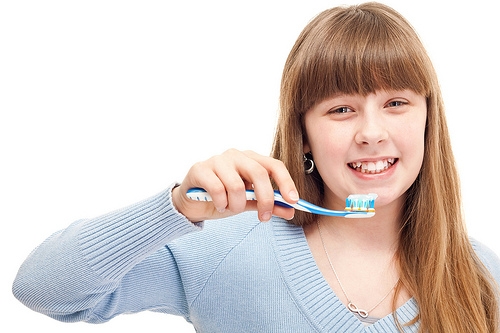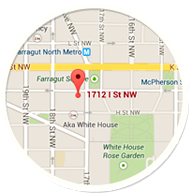Thanksgiving Trivia
November 26th, 2014

At Harvey M Levin, DDS we love learning trivia and interesting facts about Thanksgiving! This year, Dr. Harvey Levin wanted to share some trivia that might help you feel a bit smarter at the holiday dinner table and help create some great conversation with friends and family.
The Turkey
There is no historical evidence that turkey was eaten at the first Thanksgiving dinner. It was a three-day party shared by the Wamponoag Indians and the pilgrims in 1621. Historians say they likely ate venison and seafood.
According to National Geographic, the dinner at the Plymouth colony was in October and included about 50 English colonists and 90 American Indian men. The first Thanksgiving dinner could have included corn, geese, and pumpkin.
Today, turkey is the meat of choice. According to the National Turkey Association, about 690 million pounds of turkey are consumed during Thanksgiving, or about 46 million turkeys.
The Side Dishes
The green bean casserole became popular about 50 years ago. Created by the Campbell Soup Company, it remains a popular side dish. According to Campbell’s, it was developed when the company was creating an annual holiday cookbook. The company now sells about $20 million worth of cream of mushroom soup each year, which is a major part of the recipe.
While there were likely plenty of cranberries for the pilgrims and Indians to enjoy, sugar was a luxury. What we know today as cranberry sauce was not around in those early Thanksgiving days. About 750 million pounds of cranberries are produced each year in the US, with about 30 percent consumed on Thanksgiving.
The Parade
Since Thanksgiving did not become a national holiday until Lincoln declared it in 1863, the annual parades were not yearly events until much later. The biggest parade that continues to draw crowds is the Macy's Thanksgiving Day Parade. Beginning in 1924 with about 400 employees, they marched from Convent Avenue to 145th Street in New York City. Famous for the huge hot-air balloons today, it was actually live animals borrowed from the Central Park Zoo that were the stars of the show then.
However you choose to spend your Thanksgiving holiday, we wish you a safe, happy and healthy holiday with those you love.
How to Handle an Unexpected Dental Emergency
November 19th, 2014

Regardless of the type of dental emergency you experience, it is important that you visit Harvey M Levin, DDS for emergency dental care as soon as possible. A chipped or cracked tooth requires professional attention, as bacteria may gather in these areas, potentially causing infection that could require a root canal. Remember, you may be capable of managing pain, bleeding, and swelling at home, but by visiting our office for immediate treatment, you can fight infections and minimize lasting damage to your mouth, teeth, and gums under the expert care of our emergency dentist.
24/7 Emergency Dental Care
Harvey M Levin, DDS is proud to offer emergency dental care around the clock, seven days a week. Dental emergencies do not wait for regular business hours, and if you experience a serious dental emergency, you need immediate treatment. Whether you have a broken tooth or if you have bitten through your tongue, do not hesitate to visit us day or night. Until you arrive at our office, however, there are some helpful steps you can take if you encounter a serious dental dilemma.
Managing Your Dental Emergency
If a toothache is causing problems, you can probably keep the discomfort under control until our emergency doctor can treat you. Start by checking the gums that surround the affected tooth for inflammation, bleeding, or foreign objects. There may be food lodged in the gum that could be removed by flossing. You can control pain by placing a cold compress against your mouth, or by using an over-the-counter oral numbing agent.
More serious situations may be extremely time sensitive, and require immediate emergency attention. For example, if a tooth is completely knocked out, carefully clean it with water. Try to place the tooth back into its socket or briefly store it in a cup of milk if it will not fit back into the gum. Never pick up a tooth by the root or force it into the socket. Come straight to our office, as your tooth will need to be replaced within a short amount of time. Similarly, if you have bitten through your lip or tongue, the American Dental Association recommends carefully cleaning the area before coming as quickly as you can to our emergency dental office for treatment.
Remember, there is no reason you should live with discomfort. By visiting our Washington, DC office immediately in an emergency, you can take control of your oral health comfortably and safely.
Regular Cleanings Lead to Healthier Mouths and Bodies
November 12th, 2014

The American Dental Association and dentists everywhere, including our own Dr. Harvey Levin recommend that you schedule an appointment every six months for a cleaning and checkup. Despite this universal recommendation from the experts, some people believe regular cleanings and checkups are unnecessary unless there is something wrong with your teeth—for example, a cavity or a toothache. In fact, coming in for a six-month checkup and cleaning is one of the most important things you can do for your oral health, as well as your overall health.
Why It’s Important to Visit Regularly
Numerous studies have shown that oral health is closely tied to the overall health of your whole body. In fact, having a healthy mouth can help the rest of your body stay in balance. On the other hand, an unhealthy mouth can cause all kinds of problems for you down the road.
One of the most important things we do at Harvey M Levin, DDS when you come in for cleanings is remove plaque that has collected on your teeth and around your gums. If left untreated, plaque build-up can cause inflammation and irritation around your gums, and lead to gum diseases like gingivitis and periodontal disease.
According to the American Academy of Periodontology, periodontal disease has been linked to increased risk for serious health conditions such as heart disease, stroke, diabetes, inflammation, osteoporosis, and pregnancy complications.
Most oral health issues will begin with subtle changes before progressing into more serious conditions. If you visit us for regular checkups, we may be able to identify common indicators that could lead to larger issues down the road. If we only see you at our office every few years, it becomes more difficult to catch these conditions before they grow into bigger and more painful problems.
What happens at a dental checkup?
When you come in for your regular checkup, there are several things our dentists and hygienists may do, including:
- Take X-rays to determine the overall health of your teeth, jaw, bones, and the tissue surrounding your teeth, including a check for early signs of tooth decay, abnormal growths, cavities, and other damage that is not immediately visible
- Perform a thorough cleaning of your mouth and teeth to remove any excess plaque and tartar, then polish and floss your teeth
- Check for signs of gum disease or evidence of tooth decay
- Examine your bite, and look for broken or damaged teeth
- Identify any changes to your gums or teeth since your last visit
- Examine your head and neck for signs of oral health problems
Waiting to visit Dr. Harvey Levin until you already have a problem, like a cavity, is like waiting to put gasoline in your car until after you run out and your vehicle is stalled on the side of the road. Once you have a problem, the ripple effect can cause you a lot of pain, take considerably more time, and cost a lot more money to fix than if you had come in for preventive care and cleanings every six months.
References: American Academy of Periodontology (2012). Gum Disease Links to Heart Disease and Stroke. Retrieved from http://www.perio.org/consumer/mbc.heart.htm
How can veneers improve my smile?
November 5th, 2014

Dr. Harvey Levin and our team at Harvey M Levin, DDS know your smile is an important part of your appearance; it can be a source of pride or embarrassment. Everyone deserves beautiful, straight teeth that complement their features, but few are born with natural dental perfection. Fortunately, cosmetic dentistry has come a long way in recent years, with veneers making it possible to make over your smile completely.
With dental veneers, the smile of your dreams can become a reality. These thin, wafer-like shells are crafted of porcelain and completely customized to fit your smile. Once your tooth size, shape, and color have been determined, veneers are adhered to the surface of your natural tooth, instantly transforming your appearance. What used to be a secret of the rich and famous is now highly accessible to dental patients around the world.
Benefits of dental veneers
Appearance
Dental veneers are very natural in appearance and virtually undetectable to other people. Their non-porous surfaces make them resistant to staining, which ensures they do not change color over time.
Improvements
Dental veneers can be used to improve the appearance of many kinds of imperfections. In fact, an entirely new smile can be crafted from veneers, to cover up chipped teeth, discoloration, and gaps between teeth.
Durability
Veneers are long-lasting cosmetic enhancements that can survive many years with appropriate care and maintenance. They are specially fabricated to be resistant to scratches and chipping, which makes them a practical solution for the average person.
Flexibility
Dental veneers are highly adaptable. You can opt for only a single veneer to repair a chipped or cracked tooth, or you can modify multiple teeth at once for a smile makeover.
Considerations
Keep in mind that cosmetic treatments like dental veneers are secondary to primary dental care. You must have healthy teeth and disease-free gums to be a candidate for cosmetic procedures. An initial consultation at our convenient Washington, DC office will reveal any underlying decay or other problems that must be addressed prior to getting veneers. Give us a call today!










